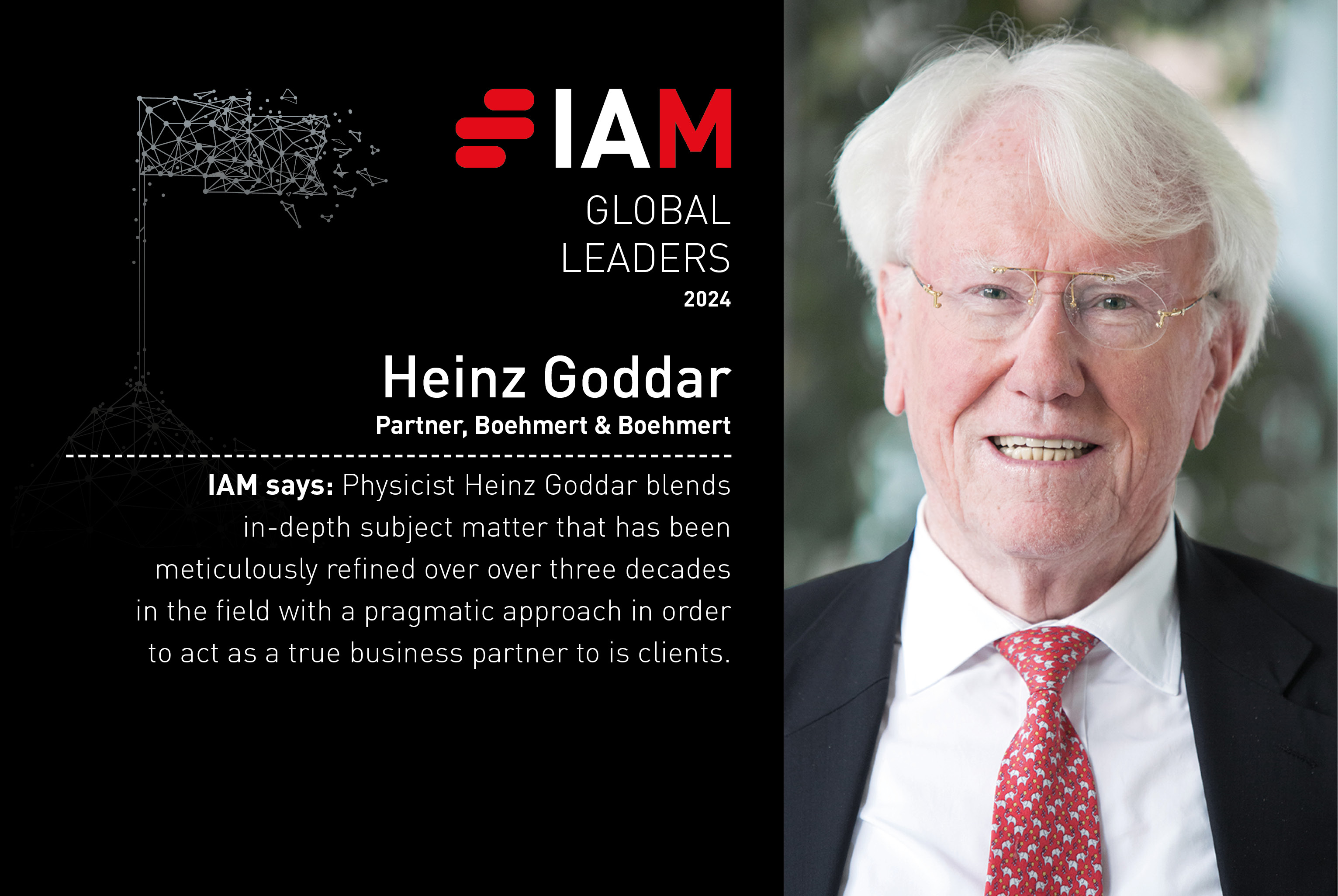Heinz Goddar
 What steps can patent owners take to strengthen their positions in light of the UPC?
What steps can patent owners take to strengthen their positions in light of the UPC?
What patent owners can do has, in a very practical form, been described in “The Lack of Harmonization and Consequently Fragmentation in the Patent Field”, which was written by me and Konstantin Werner in the recently published book The Unitary Patent Package & Unified Patent Court – Problems, Possible Improvements and Alternatives, with which my partner at Boehmert & Boehmert Melanie Müller has been very helpful (commented on by Stefan Luginbuehl, EPA, in GRUR, Volume 72, Issue 3, March 2023, pp 250-256).
In a nutshell, we strongly recommend for future patent applications to cover Europe, in parallel to EPC applications filed at EPO – either directly or via the Patent Cooperation Treaty – and a national German patent application without request for examination. Then, before the seven-year expiration date (after the filing date of the German application), the applicant can decide whether to request an examination and thereby pave the way to a national German patent, in addition to a unitary patent. The latter will have to be dealt with at UPC. National German patents will remain forever in the German courts’ jurisdiction, without the UPC – with all of its uncertainties – getting involved.
What has been the biggest professional challenge you faced in the last 12 months, and how did you overcome it?
The biggest professional challenge I have faced in the last 12 months has been participating in the ongoing SEP/FRAND discussions at the EU Commission in relation to its SEP/FRAND draft regulation proposal from 27 April 2023 (COM(2023) 232). The public discussion is positive and I personally am continuing to support the proposed regulation to guide a way out of the present jungle of parallel court procedures in many countries.
As a lecturer at Bucerius Law School, what advice would you give to aspiring IP law professionals?
My advice, which I am sure my co-lecturer Melanie Müller would also support, is to focus on getting a deep understanding of the ongoing discussion in Germany and elsewhere of to what extent public interest – as a supplement to third-party interests – should be considered when deciding on whether to grant injunctive relief in patent litigation. Additionally, trade secrets play an increasing role in patent protection, not so much as a replacement but a supplement.
Whatever is developing so far (and the same applies to data collection for AI themes), will be necessary to give clients the right advice in relation to the increasingly developing open-innovation world, which is characterised by cooperation and licensing much more than pure litigation and the ‘unconditioned’ exercise of monopoly rights against others.
You told IAM last year that the developing IoT was having the biggest impact on your practice. Is this still true today, and what would be your top tips for those in industries with a level of tech convergence?
Yes, the developing IoT still has an immense impact on my practice as a patent attorney. It has become even more challenging due to the increasing interplay between patents and trade secrets in IoT/AI, which needs to be taken into account when determining the correct protection mechanism for such related innovations. The development of a data depository (ie, additional knowledge not contained in patent applications) will need new considerations in view of the fact that innovations, even in hardware-characterised technologies, are increasingly being replaced or supplemented by immaterial (ie, software) solutions.
How would you characterise the German licensing landscape at present?
The German licensing landscape presently is characterised by the steadily growing use of patent portfolios that contain SEPs, ordinary patents and trade secrets to deliver enabling technology knowledge in the broader sense, by licensor to licensee. Further, industry-university cooperation (eg, the 2022 edition of “Model agreements for industry/university cooperation”, German Federal Ministry for Economy and Climate) is playing more of a role in taking care of the development of more multilateral cooperations. Such cooperations involve more than one university and more than one industry-player – more and more we are seeing conglomerates (consortia) of cooperating parties.
Heinz Goddar
Partner
Based in Munich, Heinz Goddar is a partner at Boehmert & Boehmert and teaches IP law at the University of Bremen, Bucerius Law School and the Munich IP Law Centre, as well as several universities in Asia and the United States. Prof Dr Goddar is a past president of LES International and LES Germany, and he has been a co-editor of Trade Secrets Throughout the World since January 2023.